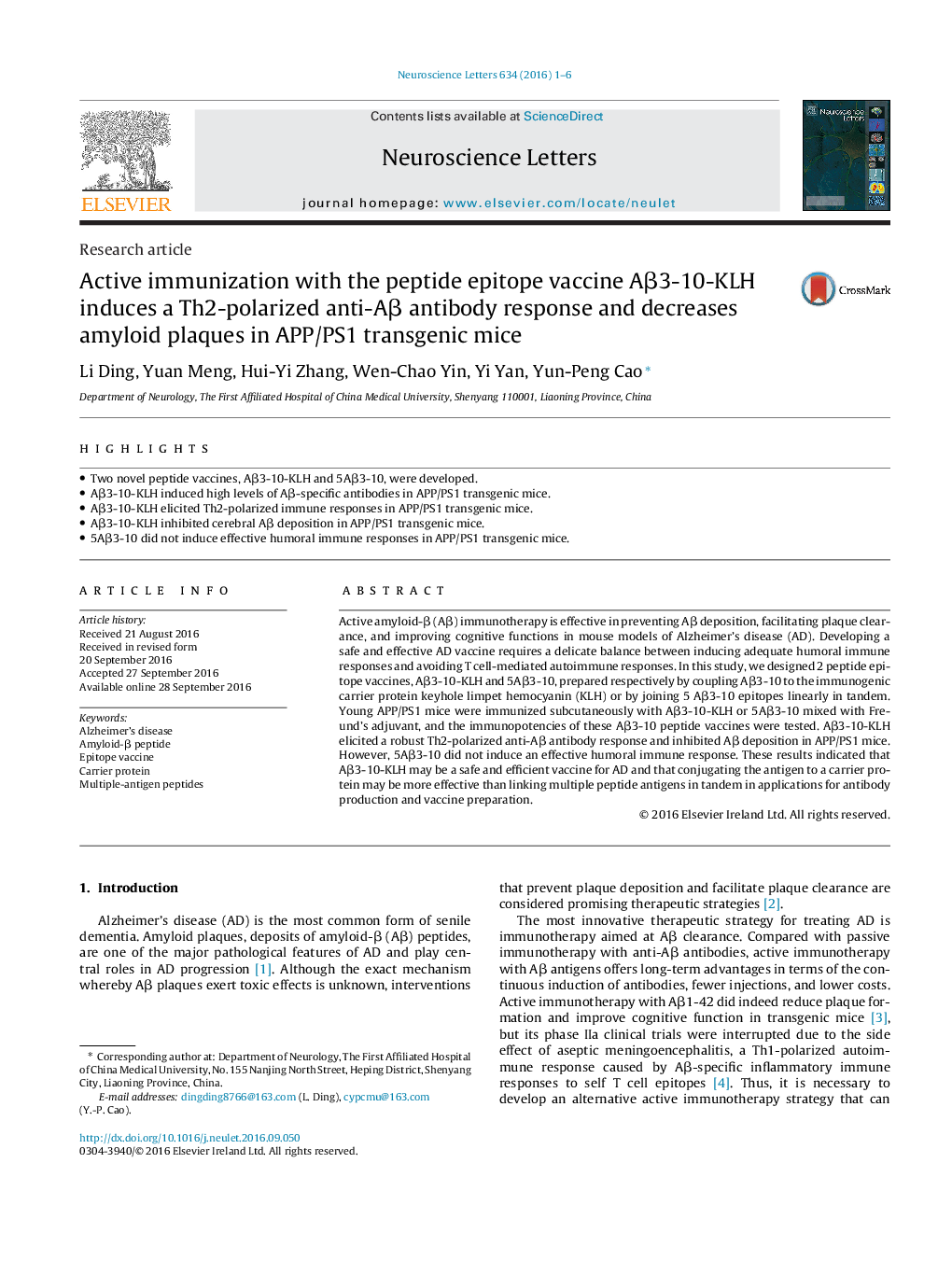| Article ID | Journal | Published Year | Pages | File Type |
|---|---|---|---|---|
| 6278848 | Neuroscience Letters | 2016 | 6 Pages |
Abstract
Active amyloid-β (Aβ) immunotherapy is effective in preventing Aβ deposition, facilitating plaque clearance, and improving cognitive functions in mouse models of Alzheimer's disease (AD). Developing a safe and effective AD vaccine requires a delicate balance between inducing adequate humoral immune responses and avoiding T cell-mediated autoimmune responses. In this study, we designed 2 peptide epitope vaccines, Aβ3-10-KLH and 5Aβ3-10, prepared respectively by coupling Aβ3-10 to the immunogenic carrier protein keyhole limpet hemocyanin (KLH) or by joining 5 Aβ3-10 epitopes linearly in tandem. Young APP/PS1 mice were immunized subcutaneously with Aβ3-10-KLH or 5Aβ3-10 mixed with Freund's adjuvant, and the immunopotencies of these Aβ3-10 peptide vaccines were tested. Aβ3-10-KLH elicited a robust Th2-polarized anti-Aβ antibody response and inhibited Aβ deposition in APP/PS1 mice. However, 5Aβ3-10 did not induce an effective humoral immune response. These results indicated that Aβ3-10-KLH may be a safe and efficient vaccine for AD and that conjugating the antigen to a carrier protein may be more effective than linking multiple peptide antigens in tandem in applications for antibody production and vaccine preparation.
Related Topics
Life Sciences
Neuroscience
Neuroscience (General)
Authors
Li Ding, Yuan Meng, Hui-Yi Zhang, Wen-Chao Yin, Yi Yan, Yun-Peng Cao,
